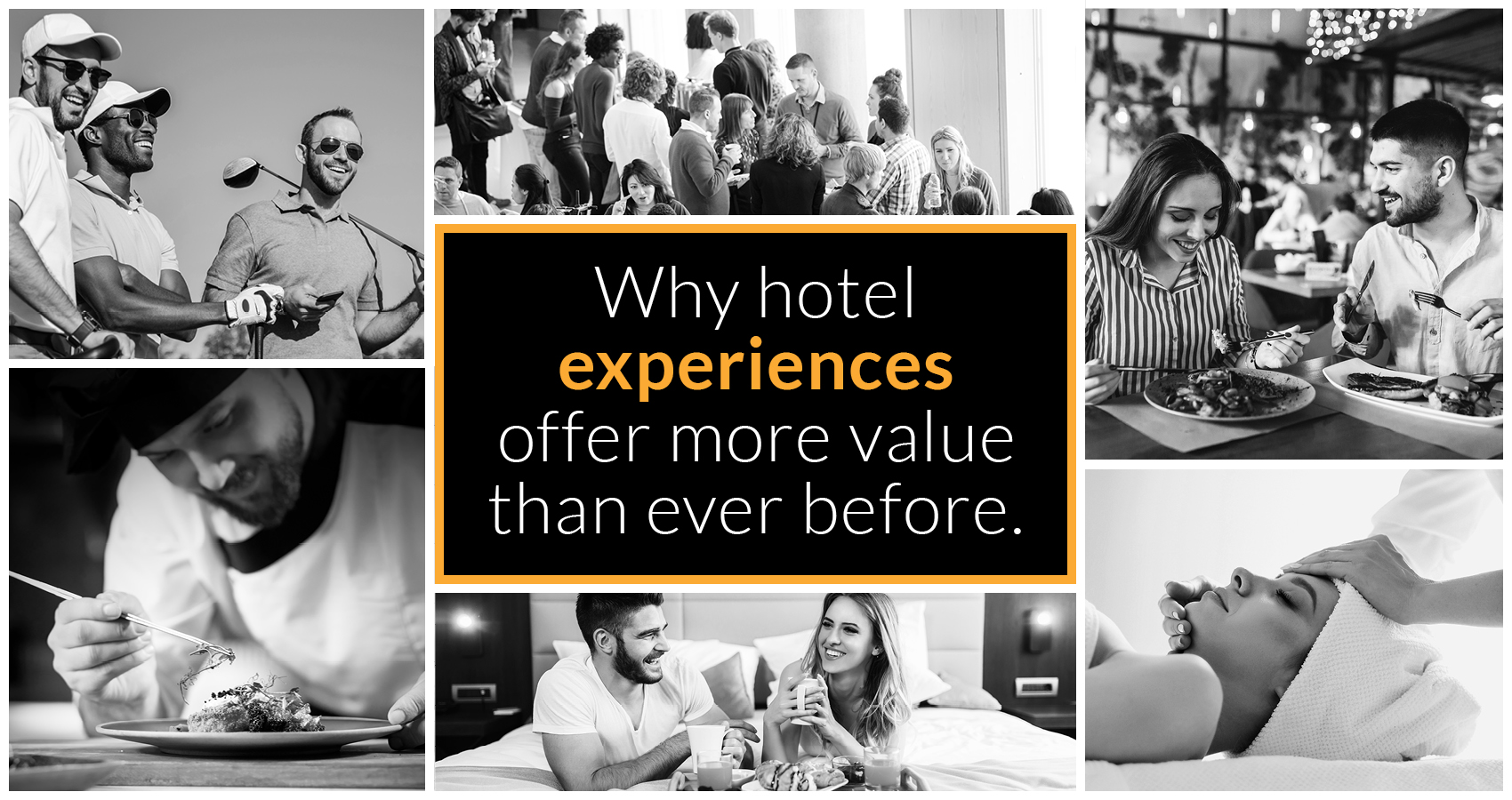However, acquiring things appears to no longer dictate class or status—at least, not like it used to. Although our lifestyle is largely impacted by what we can afford, we’ve decided it serves us better to ask, “What does this afford me?”
Nearly 1/3 of Americans now prioritize experiences over products—providing clear advantages for hoteliers.
Research shows the shift from buying material things to procuring experiences due to a higher perceived value. Buying habits demonstrate less concern with the status quo and less commitment to big purchases because they feel more like limiting factors in life. We want to be free to carpe our diem. The choice to experience life’s next adventure means we value access over ownership.
And now we have Instagram and TikTok to put them on full display.
The choice to experience life’s next adventure means we value access over ownership.
Social Media: A Stage for Sharing
The rise of social media has manifested a world that markets lifestyle as much as, if not more than, acquiring items. Digital diaries and social scrapbooks that showcase life’s wildest adventures like photographs of sublime destinations, highlight reels, luxury retreats, authentic cuisine, and local boutique shops.
Experiences produce Instagram-worthy content because they favor more engagement than showing off designer shoes. Posts that advertise the action of “living life” generate more coveted attention, likes, comments, and ultimately, connections.
Although, the growth of the experiential economy doesn’t solely rest on our shift in detaching from material things. It also rests on our attachment to others. Studies have found that spending money on experiences brings more lasting joy because experiences are something we can share.
Spending money on experiences brings more lasting joy because experiences are something we can share.
Memories are More Valuable Than Material
Everything we experience leaves its mark on our brains. For years, research has shown that, over time, our experiences can change our nervous systems and reshape our minds, literally.
So, our experiences become memories and those memories drive our emotions and those emotions drive our spending habits. As a result, consumers continue to seek out or promote brands, hotels included, that leave a lasting impression. As more research shows, experiential rewards have the highest effectiveness.
That sense of connection leaves us with a feeling that we attach to the memory of each experience. Creating a memory, like discovering a milestone in life, tasting the flavors of another culture, or taking a day off from work to feel pampered, is deemed meaningful to our lives and therefore, worth the value of our dollar.
Anticipation vs. the Experience
Because, of course, satisfaction doesn’t only come the moment something is experienced. It comes in the form of anticipation—where the excitement builds prior to the payoff.
Our experiences start long before we actually experience them. When anticipating dinner at a new restaurant, we look ahead at the menu online. Once we book a spa treatment, we can relax our shoulders at the thought of finally feeling better. Planning a couple’s weekend away builds the butterflies of anticipation because we can’t wait to have any other obligation than being together. Scheduling a tee time with old friends leaves us excited and looking forward to 18-holes of friendly competition and catching up.
To a hotel guest, satisfaction is directly connected with the experience. Equally, guest satisfaction is directly connected with business performance. With guests focused on purpose-driven experiences, hoteliers that adapt to offer more experience-focused services will succeed in the changing world. The more personal the experience, the more memorable, which offers more value to a customer. The hotelier’s benefit is loyalty.
Deloitte studies say 39% of guests are likely to spend more on a personalized experience and over 30% more than the average hospitality guest. Great experiences increase guest satisfaction and the likelihood of that customer coming back. 41% will tell friends and family about their experience, which increases revenue, brand loyalty, and generates marketing for a business.
Technology has made it widely popular and easily accessible for properties to offer unique experiences and services. Especially for hoteliers that can capitalize on their own amenities. For example, an online gifting program that offers creative and flexible experiences, providing guests with more value than an impersonal gift card.
Memorable experiences are a catalyst for human connection – something that provides genuine value to today’s guests. We no longer presume material possessions define success. Buying experiences is a purpose-driven chance to connect.
While buying a product might make us happy, initially, an experience elicits more meaning and lasts longer than any material item.


